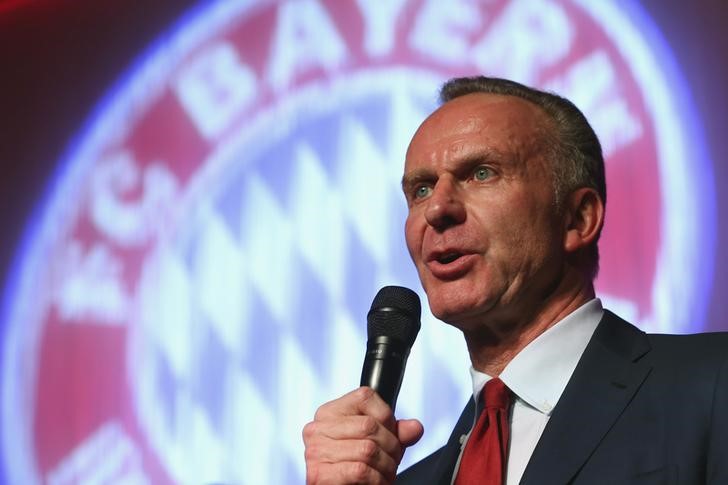(Reuters) - European clubs want compensation if FIFA stages the 2022 World Cup in Qatar in November and December while the leagues said such a move would cause "great damage" to domestic soccer.
Meanwhile, the world players' union FIFPro said any discussion over shortening the World Cup should involve its members and that it remained equally concerned about the human rights situation in the Gulf state.
A FIFA Task Force examining dates for the event recommended a shorter tournament, staged over the cooler months of November and December 2022, after the last of its three meetings in Doha on Tuesday.
The recommendation will be sent to FIFA's executive committee for a final decision in Zurich on March 20, ending a four-year long saga over when the tournament should be played.
"For the football family, the rescheduling of the FIFA World Cup 2022 presents a difficult and challenging task," Karl-Heinz Rummenigge, chairman of the European Clubs' Association (ECA), said in a statement.
"All match calendars across the world will have to accommodate such a tournament in 2022/23, which requires everyone's willingness to compromise.
"European clubs and leagues cannot be expected to bear the costs for such rescheduling. We expect the clubs to be compensated for the damage that a final decision would cause."
The Association of European Professional Football Leagues (EPFL) also disagreed with November-December, saying the proposal would "perturb and cause great damage to the normal running of the European domestic competitions."
The EPFL reiterated that May would be a less disruptive way of avoided the searing heat of June-July, a period which has been dismissed despite Qatari assurances that they can build naturally cooled stadiums.
English Premier League chief executive Richard Scudamore said there was little discussion during Tuesday's meeting.
"We were pretty much just told, hence the disappointment," he said.
The German Football League (DLF) said it was concerned about the players.
"Staging the World Cup in November/December is an organisational as well as a financial burden for European leagues," DLF managing director Andreas Rettig said.
"One also has to take into account the strain on top players. A shortened match plan cannot mean that there will be the same number of games to be played in a shorter period of time."
FIFPro was satisfied that the summer months of June and July had been ruled out but said there was a lot more to worry about.
"Changes to the match schedule that could potentially place extra strain on the workload of the players is for FIFPro to analyse together with all stakeholders in due course," the organisation said in a statement.
General secretary Theo van Seggelen said removing players from the danger zone of playing in a Qatari summer was only the first very important step.

"FIFPro has tabled its concerns as the conditions in Qatar go way beyond heat," he said. "It's a human rights matter more than anything else."